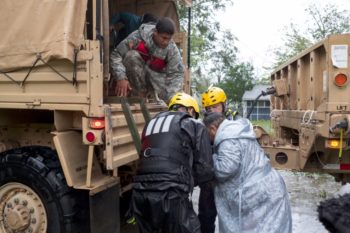
Hyundai Motor said on Wednesday it will sell 1,000 hydrogen-powered trucks in Switzerland over the next five years through a new tie-up, betting the vehicles could beat battery-powered models sold by the likes of Tesla Inc.
South Korea’s Hyundai and Japan’s Toyota are among a handful of car makers doubling down on hydrogen vehicles amid an intensifying global race to develop greener technologies to replace combustion engines, as regulators around the world crack down on emissions.
The deal, which will double Hyundai’s hydrogen vehicle sales, marks its latest push into a technology that has lagged battery electric vehicles.
Hyundai, whose profits have tumbled due to a heavy reliance on low-demand sedans, hopes to burnish its brand image by taking the lead in hydrogen cars.
On Wednesday, Hyundai said in a statement it will partner with Swiss hydrogen company H2 Energy and fuel cell operators to provide 1,000 hydrogen trucks in the country after launching at the end of 2019 what it says will be the world’s first commercial hydrogen trucks.
It did not provide any financial details.
The launch timeline is ahead of battery-powered trucks Tesla and Daimler plan to introduce in 2020 and 2021, respectively.
Hyundai announced a partnership with Audi in June to share each other’s hydrogen car technology and components to bring down production costs and make the technology profitable.
For long-haul, hydrogen trucks have a huge advantage over battery rivals as heavy batteries can reduce cargo capacity and require longer charging times, Mark Freymueller, a commercial vehicle director at Hyundai Motor, told Reuters.
Hyundai said its hydrogen trucks are expected to deliver a single-fueling travel range of around 400 kilometers.
‘We are not planning just purely 1,000 vehicles and then stop the business… We expect that much more is coming afterward,’ he said, adding Hyundai would look at launching it in the United States, China, and other European countries.
Freymueller said expanding into other markets, however, will depend on finding partners such as pump operators and hydrogen suppliers.
The uptake of hydrogen cars, which are propelled by electricity generated by fuel cells, has been held back by a lack of infrastructure, which costs 3 billion won ($2.7 million) each to build in South Korea.
Hyundai Motor launched the industry’s first mass-produced hydrogen car Tucson Fuel Cell in 2013, followed by NEXO this year.
It has sold about 1,140 fuel cell vehicles so far, while Toyota sold 6,700 Mirai hydrogen cars since its launch in 2014.
Hyundai and affiliate Kia Motors are hedging their bets on hydrogen cars with a plan to release 14 battery electric vehicles by 2025. ($1 = 1,120.3300 won)
HOW DO HYDROGEN FUEL CELLS WORK?
Read more at Daily Mail


















I find the lack of technical knowledge incredible. This might be one reason the anthropological climate change fraud continues.
Anyone who has had much science has seen a demonstration of electrical hydrolysis of water to produce hydrogen and oxygen. Perhaps they, and the executives at Hyundai, have some fantasy of renewable electricity making hydrogen.
Here are the facts. The source of Hydrogen on the industrial scale comes from fossils fuels, mainly natural gas. This of course releases carbon dioxide. We might as well burn the fossil fuel in the vehicle for power.
An expensive, complicated pipe dream, just to avoid producing carbon dioxide exhaust.
Try using electricity generated only from renewables to produce 100% of every component necessary, including the hydrogen fuel. Without taxpayers subsidizing it to the hilt, it won’t fly.
If you burn hydrogen and produce Dihydrogen monoxide isn’t that still polluting the atmosphere?
A suggestion for the model name of the truck could be ‘Hindenberg’.
I don’t believe hydrogen fuel cells burn hydrogen to produce electricity which fuels the electric motors attached to the drive wheels on the vehicle.
The Port of Los Angeles at Long Beach – San Pedro has just started a project to employ fuel cell trucks in and around the sprawling port facilities to move cargo, with plans to extend out into the metropolitan area over the coming few years.